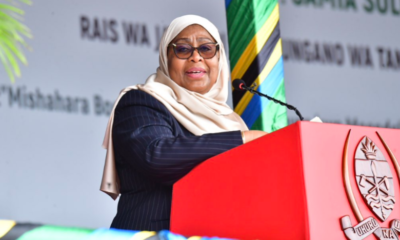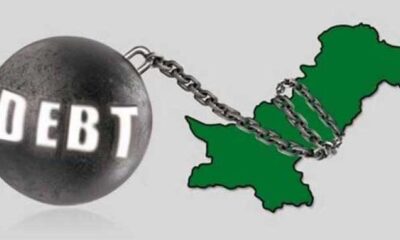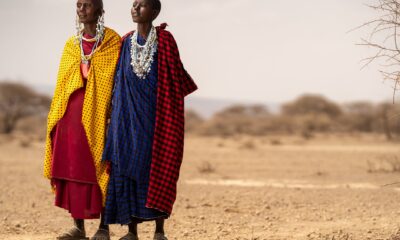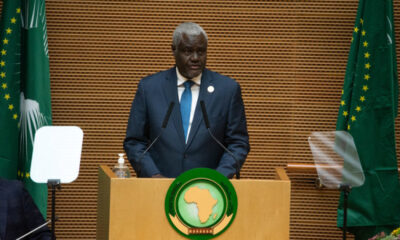Strictly Personal
Verbal primitivism as PR in an election year by Farooq Kperogi
Published
2 years agoon
It’s election season in Nigeria. The political public relations industry is abuzz. Political hopefuls are hiring hacks to write tendentious screeds that make them feel good but that no one reads. And, of course, smears, coarse insults, illogic, and prevarications are the core constituents of what passes for political public relations in Nigeria.
I have written about Nigeria’s peculiarly unpersuasive and unwarrantedly abusive political public relations in the past. I want to reflect on it again this week in light of the current political atmosphere and the heightened deployment of the same stale and sterile tactic of abuse as persuasion that I’ve written about in the past.
For the most part, Nigeria’s political public relations is crude, vulgar, and intellectually impoverished. No one who desires to change the hearts and minds of people should rely on it. It does no more than attract enemies, scare away potential converts, and ossify negative opinions about candidates or issues.
It consists in barbarous, impulsive, sophomoric insults against real and imagined political opponents—and cloying, hagiographic defense of principals or issues. It lacks nuance, is childish, and seems unconcerned with logic and persuasion. It’s also reactive and emotion-laden in the extreme.
The performance of Reuben Abati (who called critics of Goodluck Jonathan “collective children of anger”) and Doyin Okupe (who described himself as an “attack lion”), Femi Adesina (who murdered grammar by labeling government critics “wailing wailers”)—and several others before and after them—in the defense of their bosses and the demonization of their bosses’ real and imagined political enemies is a classic example of the kind of primitive political public relations that holds sway in Nigeria.
I think Femi Adesina and Garba Shehu have taken verbal primitivism in defense of their boss to an even higher plane. In their public relations, not only “political enemies” come under heavy fire; facts, truth, decency, and logic also become casualties.
They ignore the substance of critiques and try to muddy the waters by making the critic, rather than the critique, the issue.
Bishop Mathew Hassan Kukah is their latest object, as he had been in the past. As I pointed out in an April 19, 2022, article titled “Buhari Regime’s Bishop Kukah Obsession,” it appears that Adesina and Shehu are impelled by an uncontrollable urge to launch vicious personal attacks on Bishop Matthew Hassan Kukah each time he says anything remotely uncomplimentary about the Buhari regime.
“There seems to be a standing order, perhaps even an article of faith, in the Buhari presidency that Bishop Kukah must never be left unanswered,” I wrote. “Even a cough from him that remotely mimics the sound that Buhari’s name makes must be responded to with the pettiest, most sullen, and least sensible comeback.”
The desperation of the spokespeople of the Buhari regime is understandable, of course: The more a government comes to terms with its ineptitude, the more it feels the need to up its lies to mask its failures. That’s why propaganda and lies are always proportional to governmental incompetence. That is, the more incompetent a government is, the more it uses propaganda and coarse attacks on critics as a tool of governance.
Nonetheless, the object of public relations, especially political public relations, should be to arm supporters with the ideational resources to defend a person or a position, to win over people who sit on the fence, to persuade opponents to see a person or a point of view as reasonable and worthy of their respect, etc.
This has been the core preoccupation of political public relations since 64 BC when Quintus Tullius Cicero wrote Commentariolum Petitionis, regarded by many scholars as the “first publication on electioneering and political public relations.”
In the pamphlet, Cicero said the goal of what we call political public relations today is “securing the support of your friends and winning over the general public” in addition to “impressing the voters at large.”
He advised people seeking elective office to “take stock of the many advantages you possess,” “cultivate relationships,” ensure “your family and those closely connected with you” are “all behind you and want you to succeed,” “secure supporters from a wide variety of backgrounds,” “seek out men everywhere who will represent you as if they themselves were running for office,” be aware that there “are three things that will guarantee votes in an election: favors, hope, and personal attachment. You must work to give these incentives to the right people,” and, finally, that the “most important part of your campaign is to bring hope to people and a feeling of goodwill toward you.”
Persuasion takes time and work. Even at its best, it is often a gradual process consisting of small, incremental changes at a time. Crude insults don’t persuade; they only lead to a boomerang effect. Smart persuaders don’t mimic the tactics and strategies of critics. While critics tear down, persuaders build up. And they can disarm critics with grace, warmth, and facts (if they have fact, that is).
In the run-up to the 2015 presidential election, by far the most sophisticated political campaign season in Nigeria since 1999, both APC and PDP deployed the services of well-known American political public relations firms to sway voters in Nigeria because all Nigerian public relations experts know to do is bribe Op Ed editors of newspapers to plan coarse, vulgar abuses against perceived political opponents or hire online troll factories to smear and heckle critics.
APC has used the services of AKPD Message and Media, a political consulting firm owned by former Obama campaign manager David Axelrod. PDP also used the Potomac Square Group, another well-known consulting firm headed by Joseph Trippi, who managed Howard Dean’s failed presidential bid in 2004.
Axelrod’s AKPD Message and Media gave Buhari a rhetorical makeover. He went from being a perennial contestant who was dogged by the lumbering baggage of bigotry to someone more people than ever saw as an alternative to Goodluck Jonathan. There were no juvenile personal attacks against critics by overpaid minions hiding under the pseudonymic cover of the Internet.
They shunned Nigeria’s crude, vulgar, illogical, abusive, and transparently mendacious political public relations. They are smart enough to know that the problem with crude, abusive political public relations is that it only excites and fires up supporters (who don’t need it because their loyalty is already in the bag), but repulses opponents and puts off people on the fence.
The goal of every intelligent political PR should be, as I pointed out earlier, to convince people on the fence to join you and possibly also win over opponents.
Amnesic Romanticization of Jonathan
I read that scores of people have marched to the home of former president Goodluck Jonathan to plead with him to run for president again. The major argument advanced by people asking for his return to power was that a bag of rice was between N7,000 and N11,000 when he was president.
Well, if we decide that governance should be reduced to the price of a bag of rice, maybe some people should also go beg former President Olusegun Obasanjo to revive his stillborn Third Term project because a bag of rice during his tenure was around N2,500. That’s infinitely cheaper than the price during Jonathan’s time.
And I’d advise the dewy-eyed revisionists to reserve some of their energy so that 4 or 5 years from now when the price of a bag of rice jumps from its current price of N33,000 to possibly N50,000— or more— they can beg Buhari to return to power to restore the price back to N33,000.
If Jonathan couldn’t reverse the price of a bag of rice to the amount it was when he took over power in 2010, if the price, in fact, kept rising steadily throughout his regime, why do people think he can take back the price of a bag of rice from N33,000 to N11,000 if he becomes president again?
How can people be this simplistic and amnesic?
You may like
-


‘Slow burner’ Tanzania is at it again, but she needs to learn to make more noise, By Charles Onyango-Obbo
-


Forecast is not destiny; Africa is on the path to prosperity, By Mohamed Ghazouani
-


Don’t cry for Mandela’s party; ANC’s poll loss is self-inflicted, By Jenerali Ulimwengu
-


Appraising 25 years of return to democracy, By Jide Ojo
-


Time to end ethnic jingoism; we thrive or die together, Tee Ngugi
-


If I were put in charge of a $15m African kitty, I’d first deworm children, By Charles Onyango-Obbo
Strictly Personal
All eyes in Africa are on Kenya’s bid for a reset, By Joachim Buwembo
Published
5 days agoon
July 21, 2024
Whoever impregnated Angela Rayner and caused her to drop out of school at the tender age of 16 with no qualifications might be disappointed that we aren’t asking who her baba mtoto (child’s father) is; whether he became a president, king or a vagabond somewhere, since the girl ‘whose leg he broke’ is now UK’s second most powerful person, 28 years since he ‘stole her goat’.
Angela’s rise to such heights after the adversity should be a lesson to countries which, six decades after independence, still have millions of citizens wallowing in poverty and denied basic human dignity, while the elite shamelessly flaunt obscene luxury on their hungry, twisted faces.
After independence, African countries also suffered their adolescent setbacks in the form of military coups. Uganda’s military rule lasted eight years, Kenya’s about eight hours on August 1, 1982, while Tanzania’s didn’t materialise and its first defence chief became an ambassador somewhere.
What we learn from Angela Rayner is that when you’re derailed, it doesn’t matter who derailed you, because nobody wants to know. What matters is that you pick yourself up, not just to march on, but to stand up and shine.To incessantly blame our colonial and slave-trading ‘derailers’ while we treat our fellow citizens worse than the colonialists did only invites the world to laugh. Have you ever read of a colonial officer demanding a bribe from a local before providing the service due?
African countries today need to press ‘reset’. A state operates by written policies, plans, strategies and prescribed penalties with gazetted prisons for those who break the rules. This is far more power than teenage Angela had, so a reset state should take less time to become prosperous than the 28 years it took her to get to the top after derailing.
So it’s realistic for countries to operate on five-year planning and electoral cycles, so a state that fails to implement a programme in five years has something wrong with it. It needs a reset.
A basic reset course for African leaders and economists should include:
1. Mindset change: Albert Einstein teaches us that no problem can be solved from the same level of consciousness that created it. For example, if you are in debt, seeking or accepting more debt is using the same level of thinking that put you there. If you don’t like Einstein’s genius, you can even try an animal in the bush that falls into a hole and stops digging. Our economists are certainly better than a beast in the bush.
2. Stealing is wrong: African leaders and civil servants need to revisit their catechism or madarasa – stealing public resources is as immoral as rape.
3. Justifying wrong doesn’t make it right: Using legalese and putting sinful benefits in the budget is immoral and can incite the deprived to destroy everything.
4. Take inventory of your resources and plan to use them: If Kenya, for example, has a railway line running from Mombasa to Nairobi, is it prudent to borrow $3.6 billion to build a highway parallel to it before paying off and electrifying the railway?
If Uganda is groaning under a $2 billion annual petrol import bill, does it make sense to beg Kenya for access to import more fuel, when Kampala is already manufacturing and marketing electric buses, while failing to use hundreds of megawatts it generates, yet the country has to pay for the unused power?
If Tanzania… okay, TZ has entered the 21st Century with its electric trains soon to be operating between Dar es Salaam and Morogoro. Ethiopia, too, has connected Addis Ababa to the port of Djibouti with a 753-kilometre electric railway, and moves hundreds of thousands of passengers in Addis every day by electric train.
5. Protect the environment: We don’t own it, we borrowed it from our parents to preserve it for our children. Who doesn’t know that the future of the planet is at stake?
6. Do monitoring and evaluation: Otherwise you may keep doing the same thing that does not work and hope for better results, as a sage defined lunacy.
7. Don’t blame the victims of your incompetence: This is basic fairness.
We could go on, but how boring! Who doesn’t know these mundane points? We are not holding our breath for Angela’s performance, because if she fails, she will be easily replaced. Africa’s eyes should now be on Kenya to see how they manage an abrupt change without the mass bloodshed that often accompanies revolutions.
Strictly Personal
The post-budget crisis in Kenya might be good for Africa, after all, By Joachim Buwembo
Published
2 weeks agoon
July 10, 2024
The surging crisis that is being witnessed in Kenya could end up being a good thing for Africa if the regional leaders could step back and examine the situation clinically with cool-headed interest. Maybe there is a hand of God in the whole affair. For, how do explain the flare not having started in harder-pressed countries such as Zambia, Mozambique and Ghana?
As fate would have it, it happened in East Africa, the region that is supposed to provide the next leadership of the African Union Commission, in a process that is about to start. And, what is the most serious crisis looming on Africa’s horizon? It is Debt of course.
Even the UN has warned the entire world that Africa’s debt situation is now a crisis. As at now, three or four countries are not facing debt trouble — and that is only for now.
There is one country, though, that is virtually debt-free, having just been freed from debt due to circumstances: Somalia. And it is the newest member of the East African Community. Somalia has recently had virtually all its foreign debt written off in recognition of the challenges it has been facing in nearly four decades.
Why is this important? Because debt is the choicest weapon of neocolonialists. There is no sweeter way to steal wealth than to have its owners deliver it to you, begging you, on all fours, to take it away from them, as you quietly thank the devil, who has impaired their judgement to think that you are their saviour.
So?
So, the economic integration Africa has embarked on will, over the next five or so years, go through are a make-or-break stage, and it must be led by a member that is debt-free. For, there is no surer weapon to subjugate and control a society than through debt.
A government or a country’s political leadership can talk tough and big until their creditor whispers something then the lion suddenly becomes a sheep. Positions agreed on earlier with comrades are sheepishly abandoned. Scheduled official trips get inexplicably cancelled.
Debt is that bad. In African capitals, presidents have received calls from Washington, Paris or London to cancel trips and they did, so because of debt vulnerability.
In our villages, men have lost wives to guys they hate most because of debt. At the state level, governments have lost command over their own institutions because of debt. The management of Africa’s economic transition, as may be agreed upon jointly by the continental leaders, needs to be implemented by a member without crippling foreign debt so they do not get instructions from elsewhere.
The other related threat to African states is armed conflict, often internal and not interstate. Somalia has been going through this for decades and it is to the credit of African intervention that statehood was restored to the country.
This is the biggest prize Africa has won since it defeated colonialism in (mostly) the 1960s decade. The product is the new Somalia and, to restore all other countries’ hope, the newly restored state should play a lead role in spreading stability and confidence across Africa.
One day, South Sudan, too, should qualify to play a lead role on the continent.
What has been happening in Kenya can happen in any other African country. And it can be worse. We have seen once promising countries with strong economies and armies, such as Libya, being ravaged into near-Stone Age in a very short time. Angry, youthful energy can be destructive, and opportunistic neocolonialists can make it inadvertently facilitate their intentions.
Containing prolonged or repetitive civil uprisings can be economically draining, both directly in deploying security forces and also by paralysing economic activity.
African countries also need to become one another’s economic insurance. By jointly managing trade routes with their transport infrastructure, energy sources and electricity distribution grids, and generally pursuing coordinated industrialisation strategies in observance of regional and national comparative advantages, they will sooner than later reduce insecurity, even as the borders remain porous.
EDITOR’S PICK


Trevor Noah set for ‘Off the Record’ world tour
South African comedian and talk show host, Trevor Noah, has announced a date for his “Off The Record” global tour...


SA mobility startup LULA acquires UK-based Zeelo’s operations
South Africa’s mobility startup, LULA, has announced the acquisition of the operations of UK-based Zeelo in a move that will...


Ngannou accuses Joshua of employing dirty tactics in their fight in Saudi Arabia
Former UFC heavyweight champion, Francis Ngannou, has accused British-Nigerian boxer, Anthony Joshua, and his promotion team of employing unfair and...


#EndBadGovernance Protests: Please be patient with Tinubu’s govt, monarchs beg Nigerian youths
Some prominent traditional rulers in Nigeria have pleaded with Nigerian youths and organizers of the planned nationwide #EndBadGovernance protests scheduled...


UNESCO removes Senegal’s Niokolo-Koba National Park from list of World Heritage sites in danger
The United Nations’ Educational, Scientific and Cultural Organization (UNESCO) has removed Senegal’s Niokolo-Koba National Park from the list of World...


At Project Aliyense discourse, panelists call for balance between free speech, ethical considerations
The government has been urged to balance freedom of speech with ethical considerations and laws that prevent harm to others....


Adenia Partners acquires Air Liquide’s operations in 12 African countries
Adenia Partners, a leading private equity firm, has completed the acquisition of Air Liquide’s operations in 12 African countries, adopting...


We will handle planned nationwide protests as family matter— Nigerian Govt
The Nigerian government says it will handle the planned #EndBadGovernance protests scheduled to commence on August 1 as a family...


Veteran Nigerian entertainer Charly Boy vows to divorce wife if Kamala Harris doesn’t win US presidential election
Veteran Nigerian entertainer, Charles Oputa, popularly known as Charly Boy, has vowed to divorce his wife of 47 years if...


Saudi club Al Hilal places African transfer record bid for Osimhen
Saudi Arabia club side, Al-Hilal, have reportedly made an African transfer record bid for Super Eagles and Napoli striker, Victor...
Trending
-

 Sports1 day ago
Sports1 day agoMeet Nigerian-born players doing big things for Japan at Paris 2024 Olympics
-

 Metro2 days ago
Metro2 days agoWe will handle planned nationwide protests as family matter— Nigerian Govt
-

 Metro15 hours ago
Metro15 hours ago#EndBadGovernance Protests: Please be patient with Tinubu’s govt, monarchs beg Nigerian youths
-

 Tech2 days ago
Tech2 days agoAdenia Partners acquires Air Liquide’s operations in 12 African countries


